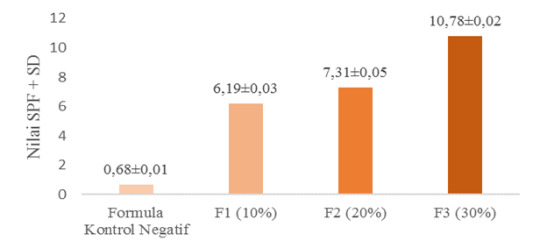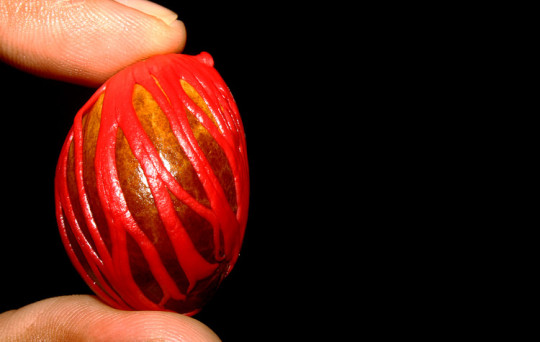#Syzygium
Explore tagged Tumblr posts
Text

Syzygium cv.
11-JAN-2025
Melbourne, Vic
#australia#victoria#melbourne#flowers#white#white flowers#australian natives#native flower#native flora#rosids#myrtales#myrtaceae#syzygium#lilly pilly
10 notes
·
View notes
Text
Two neighbors in a not very welcoming tree

Some time after I found this whole neighborhood in this single tree. 4 nests, maybe 5, I couldn't get closer

And apparently its already jambo (Syzygium) time! I love the flowers of the white and pink variety, this one is not yet in my fruit tree map. This spring is going to be fruitful

3 notes
·
View notes
Text
Meet a stately endemic - the Grey Satinash (Syzygium gustavioides)
Meet the gargantuan Grey Satinash (Syzygium gustavioides), one of the largest species of endemic Syzygiums one will find in the Wet Tropics. In my time in the Wet Tropics, I have had the rare privilege of seeing this both in flower and in fruit in the canopy, while doing research and plant collections up in the Daintree Rainforest Observatory canopy crane, some 25-30m up in the canopy. That…

View On WordPress
0 notes
Text
Subterranean Wonders: The Fascinating Resilience of African Geoxyles
Geoxyles, a distinctive feature of Afrotropical savannas and grasslands, are a type of tree that survives recurrent disturbances by resprouting from large belowground woody structures. A new study by Anya Courtenay and colleagues, published in Annals of Botany, found that underground trees inhabit significantly distinct and extreme environments relative to their taller, woody tree/shrub…

View On WordPress
0 notes
Text
Thinking about it, out backyard is not even that big, but we have a lot of stuff growing in there. There are two mango trees, a small banana patch, an acerola tree, a cashew tree, a young avocado tree, a bunch of cassava shrubs (we dug up some over the weekend), there's even some corn now. Oh, there's also the rose apple seedling I planted a while ago, although it will be some years before we see any fruit from it.
#fun fact: the scientific name for rose apple is syzygium jambos#like the syzygy for eclipses/planetary alignments#also a rose apple hit me in the eye once#text
35 notes
·
View notes
Text

29 March 2025 ~ New Moon, New Dawn
A new moon. A new beginning. The changes on which I've been working hard will finally realised in this Lunar cycle.
If you do something nice for yourself under this Super New Moon, I hope the positive energy from that will continue to grow as she waxes over the coming nights.
Tonight, I'm wandering down to collect Lillipillies. The trees have finished blossoming, and have grown little cherry-apples that are ready for harvesting. (It's not as magical as it sounds. It just grows over someone's fence into a waterway area. But it does look beautiful.) Bye for now!
#selene#polly pocket#lilly pilly#magenta lilly pilly#syzygium paniculatum#moon#new moon#moon magic#lunar magic#toys#dolls#dollhouse
2 notes
·
View notes
Text


the lilly pillies are fruiting 💗💗💗 …they taste like walking to school 🥺
8 notes
·
View notes
Link
1 note
·
View note
Text

Syzygium antisepticum. Nice bark, very red and flaky.
0 notes
Text



1 note
·
View note
Text
How to Enjoy Jamun for Optimal Health
Jamun, or black plum, is a powerhouse of antioxidants! Packed with vitamins C and A, it supports immune health, aids digestion, and regulates blood sugar levels. Enjoy this delicious fruit for a tasty boost to your well-being!
Jamun, also known as black plum or Indian blackberry, is a tropical fruit native to the Indian subcontinent. Revered for its rich flavor and vibrant deep purple color, jamun is not only a delightful addition to various dishes but also a powerhouse of nutrition. Packed with essential vitamins, minerals, and antioxidants, this seasonal fruit is particularly celebrated for its health benefits,…
#How to Use Jamun#Jamun and Digestive Health#Jamun Benefits for Liver#Jamun for Diabetes#Jamun Health Benefits#Jamun in Siddha Medicine#Jamun Seed Powder#Medicinal Uses of Jamun#Natural Remedies with Jamun#Syzygium Cumini
0 notes
Text
Lilly Pilly (Syzygium Oleosum) During the Summer Drought
Syzygium Oleosum (Lilly Pilly) from flower bud to fruit ripening Lilly Pilly (Syzygium Oleosum) Flower budsLilly Pilly (Syzygium Oleosum) Flower blossomsLilly Pilly (Syzygium Oleosum) pollinated flowersOlder Lilly Pilly (Syzygium Oleosum) pollinated flowersLilly Pilly (Syzygium Oleosum) unripe fruitsLilly Pilly (Syzygium Oleosum) young fruitsLilly Pilly (Syzygium Oleosum) ripening fruitsBlue…

View On WordPress
0 notes
Text
Formulasi Gel Sunscreen Ekstrak Daun Jambu Air (Syzygium aqueum (Burm.f) Alston)
Majalah Farmasetika, 9 (1) 2024, 24-35 https://doi.org/10.24198/mfarmasetika.v9i1. 48371 Artikel Penelitian Salma Hilmy Rusydi H*, La Ode Muhammad Anwar, Simbolon Rosa Angela Program Studi Sarjana Farmasi, Fakultas Ilmu Kesehatan, Universitas Medika Suherman, Cikarang, Jawa Barat, Indonesia*E-mail: [email protected] (Submit 31/07/2023, Revisi 11/08/2023, Diterima 17/09/2023, Terbit…

View On WordPress
0 notes
Text
Gold stamen rays of the Fibrous Satinash (Syzygium fibrosum)
When I first arrived in Far North Queensland, one of the first native Syzygiums I encountered was the Fibrous Satinash. I had seen it at Cattana Wetlands, where I frequented in my free time. “Fibrous Satinash” really is a poor choice of a name for this beautiful native satinash (Syzygium fibrosum). The flowers are showy, and are borne in the leaf axils. Each flower comprises abundant…

View On WordPress
0 notes
Text

Flowers growing from the trunk of a Syzygium moorei tree in Australia (an example of caulifloric growth)
206 notes
·
View notes
Photo

The Early History of Clove, Nutmeg, & Mace
The spices clove, nutmeg, and mace originated on only a handful of tiny islands in the Indonesian archipelago but came to have a dramatic, far-reaching impact on world trade. In antiquity, they became popular in the medicines of India and China, and they were a major component of European cuisine in the medieval period. European countries fought mightily for control of the spice trade.
Natural History
The name clove refers to the dried, unopened buds of the evergreen tree, Syzygium caryophyllata in the myrtle family. Cloves were native to only five tiny, volcanic islands in the East Indian Archipelago: Ternate, Matir, Tidore, Makian, and Bacan, all belonging to the Maluku Islands or the Moluccas.
The nutmegs are the dark reddish-brown seeds within the fruits of Myristica fragrans, of the Myristicaceae family. These seeds are surrounded by a deep red, fleshy net-like membrane, or aril, which is the mace. The nutmeg tree was native to sheltered valleys on the hot, tropical Banda Islands in the Maluku region of Indonesia.
Continue reading...
46 notes
·
View notes